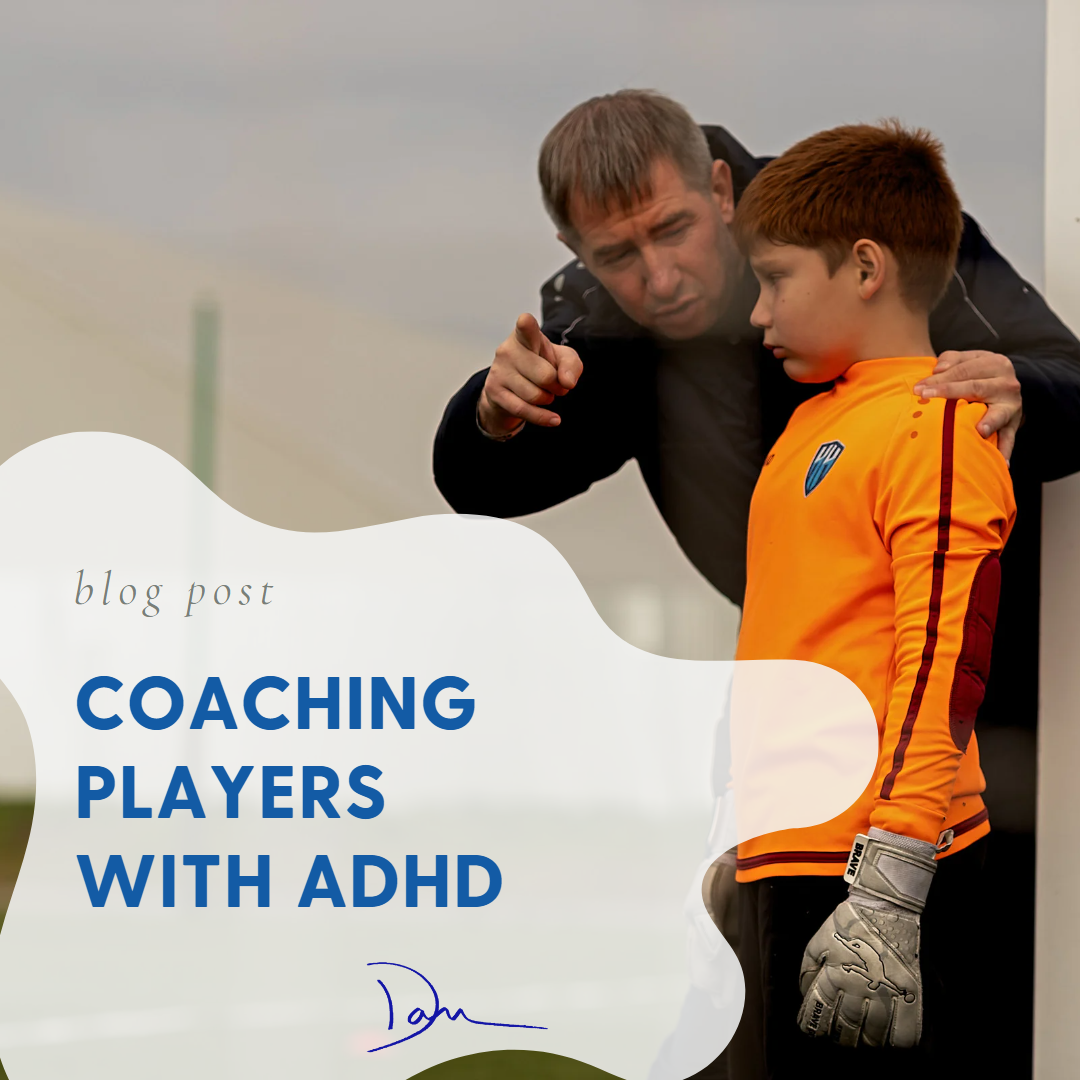Coaching players with ADHD can be challenging, as the disorder can make it difficult for individuals to stay focused and perform well in sports. However, there are effective coaching strategies that can help players with ADHD succeed. In this blog post, we will explore some of these strategies, backed by peer-reviewed research.
Understanding ADHD
Before we delve into coaching strategies for players with ADHD, it’s important to understand the disorder. ADHD is a neurodevelopmental disorder that affects the way a person’s brain develops and functions, specifically in the areas of attention, behavior, and learning. It can also affect the development of executive functioning skills, which are essential for goal-directed behavior, self-control, and decision-making (Barkley, 2010). ADHD is not a result of poor parenting or lack of effort, and it cannot be cured, but it can be managed with the right strategies and support.
Coaching Strategies for Players with ADHD
- Establish a Structured Environment – Players with ADHD often thrive in a structured environment. Creating a routine for practices and games, with clearly defined expectations and consistent schedules, can help players with ADHD feel more comfortable and focused. Research has shown that establishing routines can improve attention and behavior in children with ADHD (Chronis et al., 2004).
- Use Positive Reinforcement – Positive reinforcement can be very effective for players with ADHD. This means praising players for their successes and encouraging them to keep up the good work. Players with ADHD may struggle with self-esteem and self-confidence, so it’s important to provide positive feedback whenever possible. A study by Abikoff et al. (1980) found that positive reinforcement increased task performance and compliance in children with ADHD.
- Provide Frequent Breaks – Players with ADHD may have difficulty sustaining their attention for long periods of time. It can be helpful to provide frequent breaks during practices and games to allow players to recharge and refocus. These breaks can be short, but they can make a big difference in keeping players with ADHD engaged and focused. Research has shown that frequent breaks can improve attention and reduce hyperactivity in children with ADHD (Zentall et al., 2013).
- Use Visual Aids – Visual aids can be very helpful for players with ADHD. This can include things like diagrams or videos that demonstrate certain techniques or plays. Using visual aids can help players with ADHD better understand what is expected of them and can also help them remember important information. A study by Pfiffner et al. (2014) found that using visual aids improved homework completion and academic performance in children with ADHD.
- Keep Instructions Simple and Clear – Players with ADHD may have difficulty processing complex instructions. It can be helpful to keep instructions simple and clear, and to repeat them as needed. Breaking down complex instructions into smaller steps can also be helpful. Research has shown that simplified instructions and repetition can improve compliance and task completion in children with ADHD (DuPaul et al., 2001).
Coaching players with ADHD requires a different approach than coaching players without the disorder. Providing a structured environment, using positive reinforcement, providing frequent breaks, using visual aids, and keeping instructions simple and clear are all effective coaching strategies for players with ADHD, supported by peer-reviewed research. Remember that players with ADHD can be successful in sports with the right support and strategies in place. By using these strategies, coaches can help players with ADHD reach their full potential in sports and beyond.
References:
Abikoff, H., Gittelman, R., & Klein, D. (1980). Classroom observation code for hyperactive, inattentive, and normal children. Journal of Abnormal Child Psychology, 8(1), 15-24.
Barkley, R. A. (2010). Attention-deficit hyperactivity disorder: A handbook for diagnosis and treatment. Guilford Press.
Chronis, A. M., Chacko, A., Fabiano, G. A., Wymbs, B. T., & Pelham, W. E. (2004). Enhancements to the behavioral parent training paradigm for families of children with ADHD: Review and future directions. Clinical child and family psychology review, 7(1), 1-27.
DuPaul, G. J., Jitendra, A. K., Volpe, R. J., Tresco, K. E., & Vile Junod, R. E. (2001). Helping schoolchildren with attention deficit hyperactivity disorder: A school psychologist’s guide to assessment and intervention. John Wiley & Sons.
Pfiffner, L. J., Haack, L. M., Miller, C. J., & Grimbos, T. (2014). A randomized controlled trial to examine the efficacy of school-based homework interventions for youth with ADHD. Journal of Attention Disorders, 18(8), 654-665.
Zentall, S. S., Grskovic, J. A., & McLean, J. E. (2013). Classroom interventions for attention and hyperactivity. In Handbook of attention deficit hyperactivity disorder (pp. 229-247). Springer.


